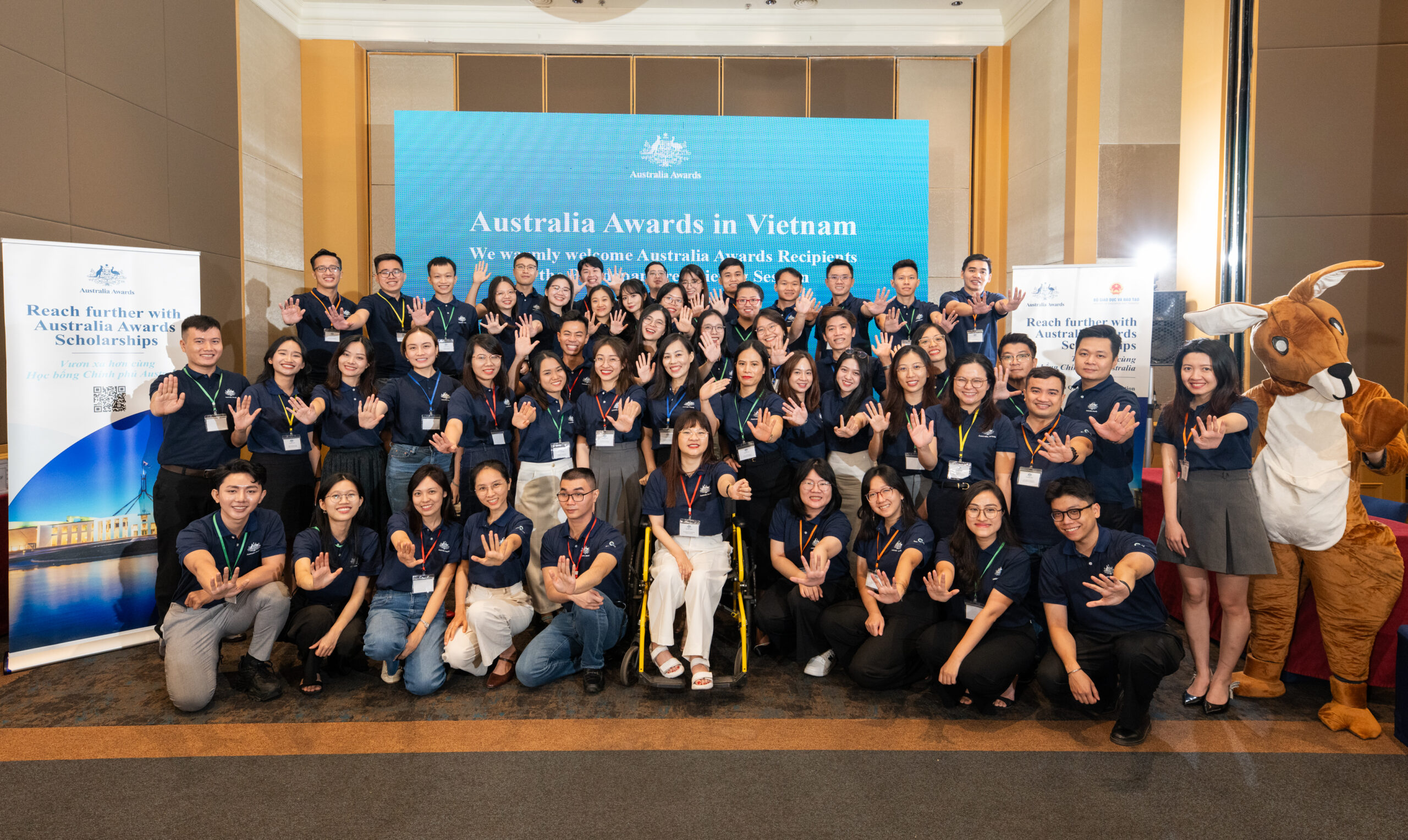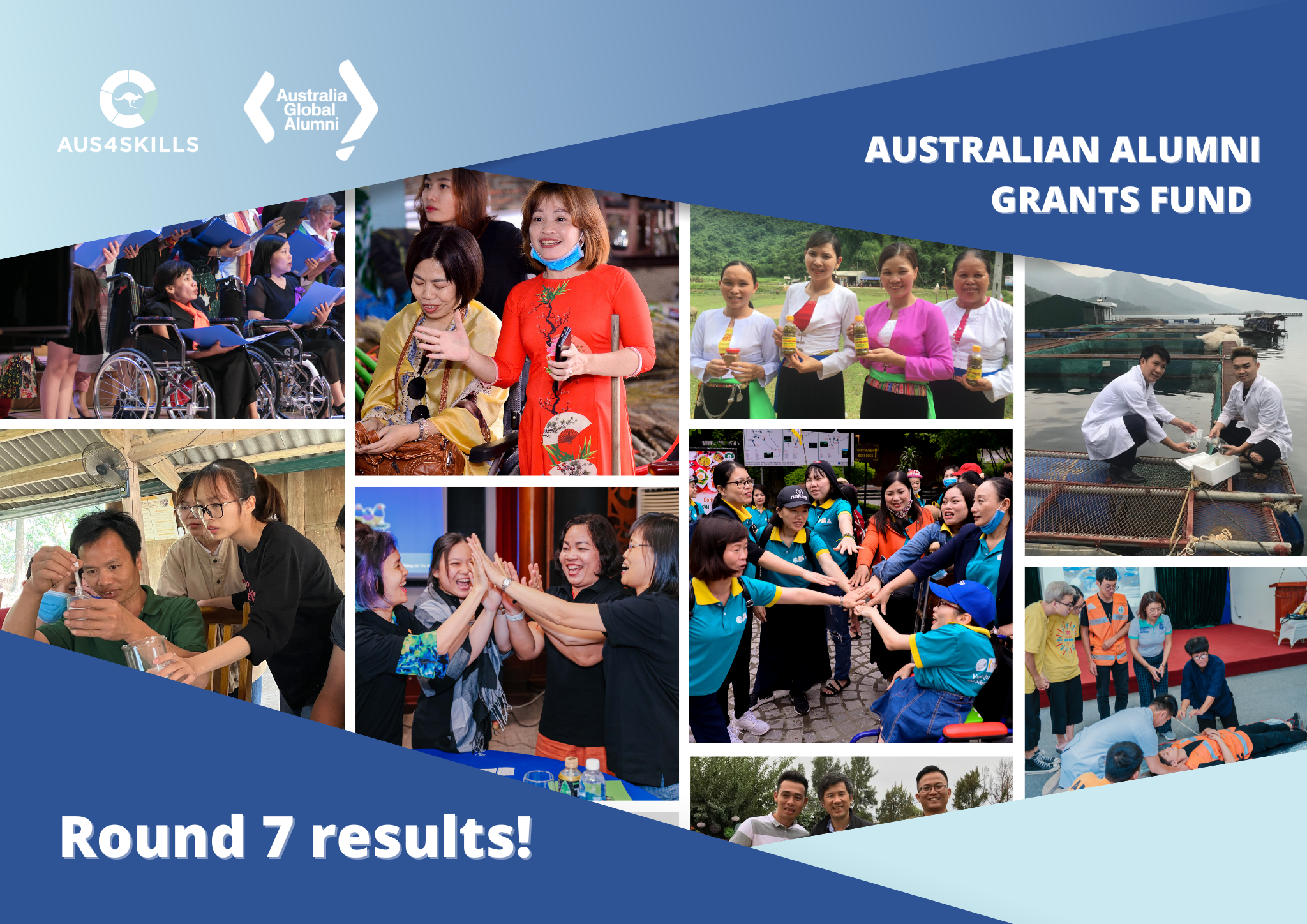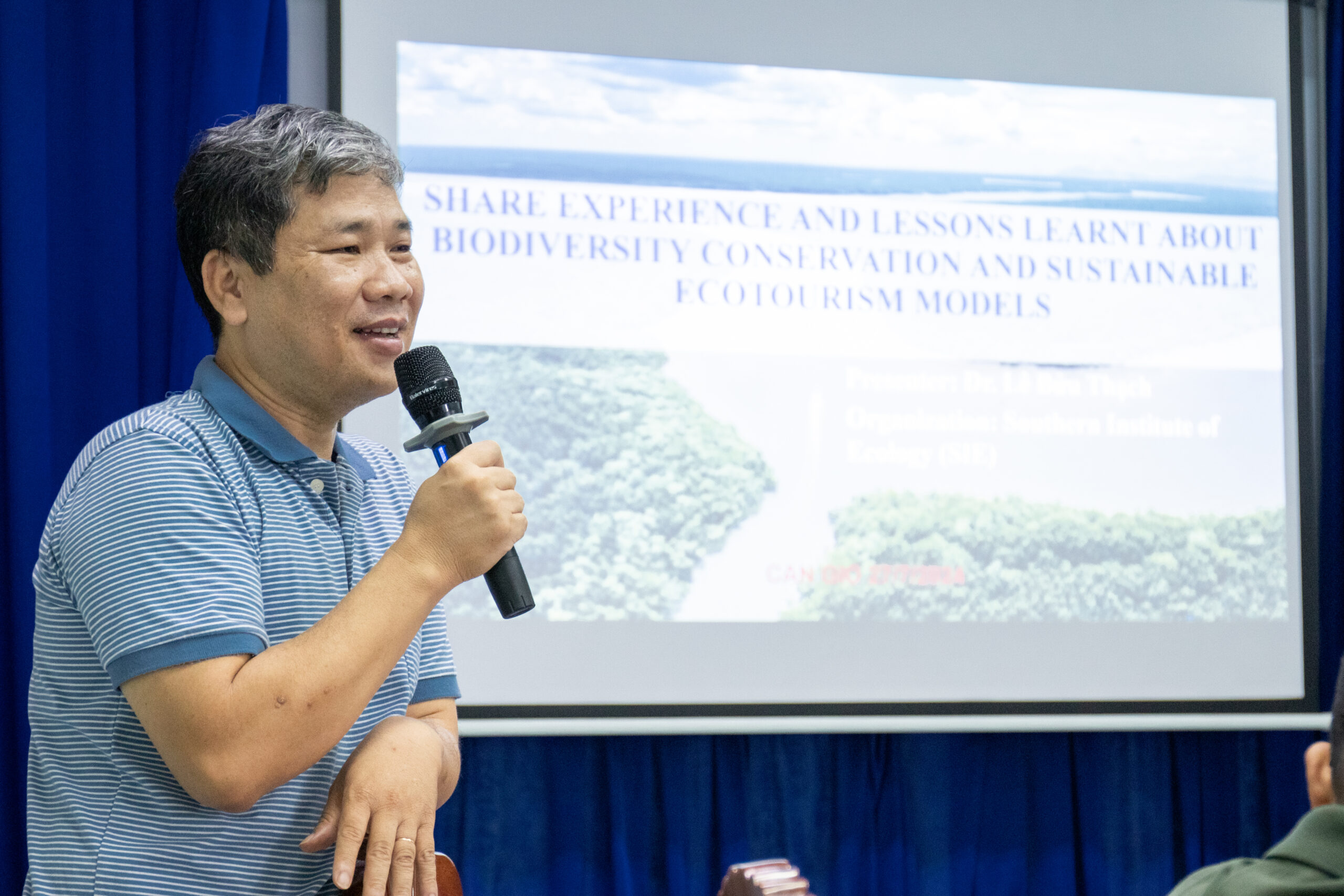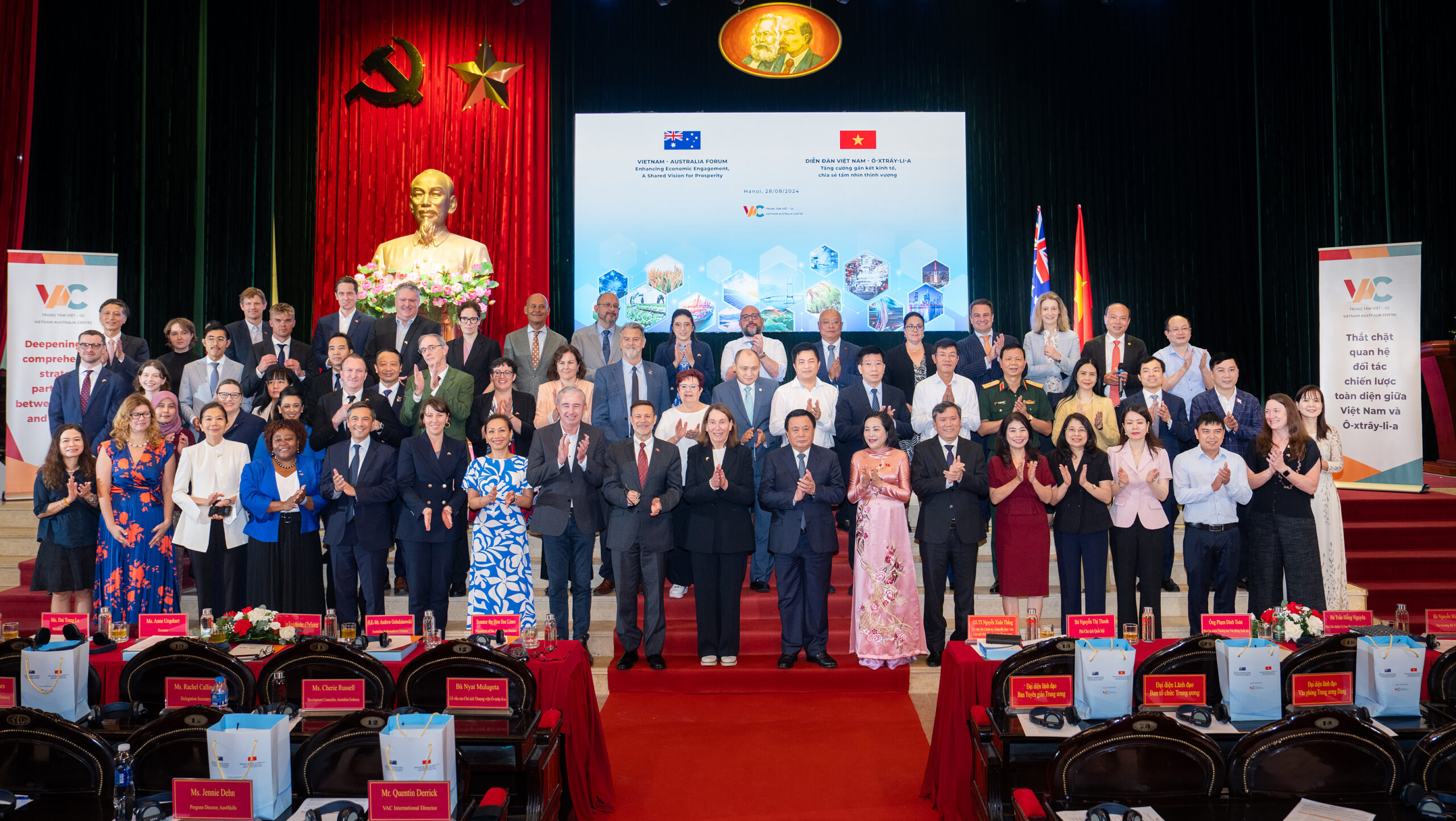Education & Times Newspaper – These are Australia Awards Alumni who returned to Vietnam upon completing their studies and made positive contributions to the community, particularly in activities providing other women with opportunities to advance their lives and careers.
In this article, please join us to hear thoughts and concerns of women who strive for “no-one left behind”!
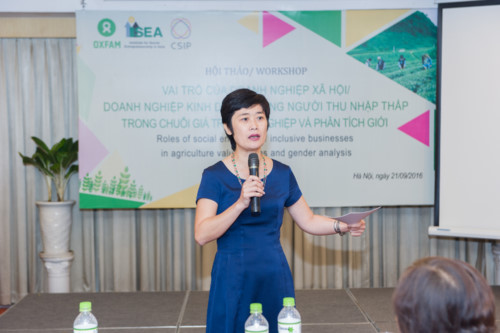
Ms Pham Kieu Oanh
Pham Kieu Oanh is one of the 20 most influential women in Vietnam in 2016, Founder and Executive Director of Centre for Social Initiatives Promotions (CSIP), and an Australia Awards alumna..
“I SELECTED A PATH WHICH COMPRISES INTELLIGENCE, KEENESS, AND BUSINESS KNOWLEDGE WITH PURPOSES FROM THE BOTTOM OF MY HEART” – Ms. Pham Kieu Oanh.
Since its establishment, CSIP has implemented women’s empowerment projects, and integrated gender indicators into inputs and outputs of projects and programs. Targets of their support include: women entrepreneurs, women leaders, business enterprises which create jobs and provide support services for disadvantaged women, etc.
Among 135 social enterprises which received support from CSIP through Social Enterprise Support Program (in 2009-2016 period), 55% of the founders are women. They are pioneering women leaders in social enterprises sector in Vietnam.
“Earlier, I usually said that business and social development were two divided worlds, one belonging to the heart, another to the the world of the brain. Actually, brain and heart are essential to each other but sometimes, they divide into two different parts. However, the social enterprise sector is the path which comprises intelligence, keenness, and business knowledge with purposes from the bottom of our hearts.” Kieu Oanh shared.
Vietnamese society is undergoing rapid development. This is an opportunity for livelihood improvement for the majority, but it is a challenge for disadvantaged groups and voiceless communities, such as women, children, ethnic minorities, people with disabilities, etc.
Without prompt support and intervention, the wealth gap, gender inequality and some social issues will create social instability and inequality. Social enterprises which are mostly led by women are an increasing strength contributing to eliminating these social problems.
“Although the combination of business and social development is facing challenges, I strongly believe that this is the right path which leads to our nation’s development. This is the path of the future.
I believe that Vietnamese women, with their intelligence and inner strengths, with their gracious and caring hearts, will bring positive changes for a more prosperous Vietnam, ensuring that no-one is left behind”, shared Kieu Oanh.
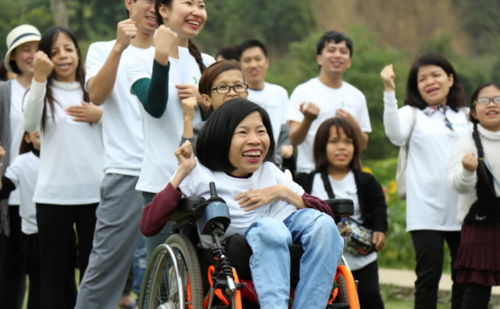
Ms Nguyen Thao Van
Ms Nguyen Thao Van was afflicted with a rare disease; she can move with assistance of a wheelchair. Despite the difficulties, she has strived to live her full self and is currently Director of the Will to Live Centre.
“I HOPE THAT I CAN INSPIRE STUDENTS, THEN WHEN THEY BECOME LEADERS, THEY WILL DO GREAT THINGS THAT A SMALL PERSON LIKE ME IS UNABLE TO DO” said Nguyen Thao Van
“I am truly happy that I have helped women, especially those are in even more difficult situations than me, so that to some extent, they can have better lives, they can believe more in life and give themselves opportunities to live happily.”
In addition to supporting and assisting the handicapped’ s complete integration, The Will to Live Centre has provided advice to prevent threats of domestic violence and gender inequality. Their work focuses not only on vocational training for livelihood improvement but also education on gender equality, avoiding sexual abuse and exploitation.
Thao Van recalled with emotion her study time in Australia under an Australia Awards Scholarship and its impact on her: “2014 was a very special year to me, because I had the privilege of receiving an Australia Awards Scholarship, it was also the first time that I came to Australia. I had opportunities to meet with and hear stories of people, organizations who fight for social equality and development on a daily basis. This enabled me to further understand the importance of my work.
I was encouraged and supported to follow bigger dreams to pursue my activities in the centre and company. I believe that in the future, the Australian Government will have more programs to increase the opportunities for disadvantaged communities in Vietnam, as in the two years since I returned home, Australia has taken many practical actions to promote the integration of people with disability in Vietnam.”
She is usually busy with giving talks which almost always leave a strong and emotional impression, but she prefers to spend time with students, particularly students from an economic, business management background.
“I am very impressed with all of you and I hope that I can inspire you, then, when becoming leaders, you will use your talents for national development, for doing great things that a small person like me is unable to do”, Thao Van answered a student from Indiana University, the U.S, when being asked why she spent more time with them despite her busy schedule.
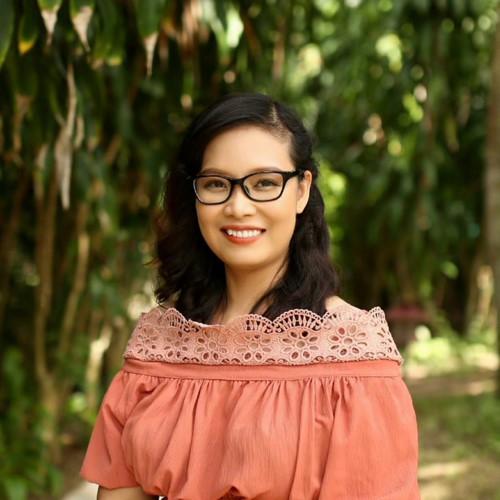
Ms. Hoang Dieu Thuy
Ms. Hoang Dieu Thuy – a Tay ethnic minority person, Director of Ha Giang Centre for Community Assistance (HCA), Managing Director of Ha Giang Community Learning Centre (HCLC)
“WE BELIEVE THAT, WITH STRONG MINDS AND SOULS, DISADVANTAGED GROUPS AND WOMEN WILL HAVE ENOUGH CONFIDENCE AND MENTAL STRENGTH TO OVERCOME POVERTY AND STAGNATION.”– said Ms. Hoang Dieu Thuy.
During the process of development and integration, women, especially women in poverty, ethnic minority women, and female children are at the greatest risk of being left behind or being marginalized.
The reason for this situation is that these groups usually face a number of barriers and are more vulnerable than other groups. Therefore, one focus of Ha Giang Centre for Community Assistance (HCA) is providing mental health care for ethnic minority women.
Mental health care in Vietnam is usually translated as psychiatric health care, which is not a new matter in the nation. In this article, Dieu Thuy would like to use the term “Mental Health” and “Mental Health Care” instead of “Psychiatric Health Care”.
“This word usage might lead to discrimination in the community towards “psychiatric” patients. Because mental health does not only refer to diseases relating to people’s mind but also knowledge and skills for healthier minds, and better lives.
In turn, approaching mental health care in the community is not an easy task given society’s discrimination and inadequate health care knowledge. This matter is difficult for most communities in the cities and delta areas, and even more difficult for ethnic minority communities in Ha Giang, particularly for ethnic minority women’s groups.” She explained.
Since its establishment, HCA has determined that providing mental health care for ethnic minority women is its major objective. Several women’s groups diagnosed with mental disorders, such as anxiety disorders, post-traumatic stress disorder, depression, especially post-natal depression, have been given support.
“HCA considers mental health issues from a cultural and local approach”, Dieu Thuy added.
Local surveys suggested that the term, definition of psychiatric diseases and mental health do not exist in some ethnic minority communities. To them, mental disorders and symptoms are considered from cultural, religious aspects, and are handled by religious customs, such as: worship, relieving them of their run of bad luck, asking gods for protection and abolishing punishments, etc. Given this situation, HCA has implemented a two-way intervention approach by providing psychological consultation, support and involving communities, particularly practitioners of religious beliefs, such as fortune tellers, shamans, soothsayers, etc. in projects’ activities.
In parallel with awareness-raising activities on mental health care for women, HCA promotes activities improving knowledge of reproductive health care, bringing gynaecologists to remote, border villages of Hoang Su Phi District, Vi Xuyen District in Ha Giang province for free treatment and consultancy for gynaecological care for women.
“In order to help these women’s groups participate in social development progress, we need to provide support in different aspects and from different angles. With its own strength, HCA is dedicated to mental health care since we believe that, with strong minds and souls, disadvantaged groups and women will have enough confidence and mental strength to overcome poverty and stagnation.” Dieu Thuy shared.
(Nguồn: http://giaoducthoidai.vn)






